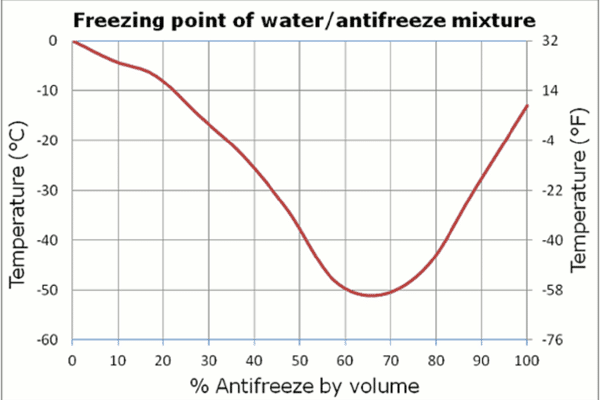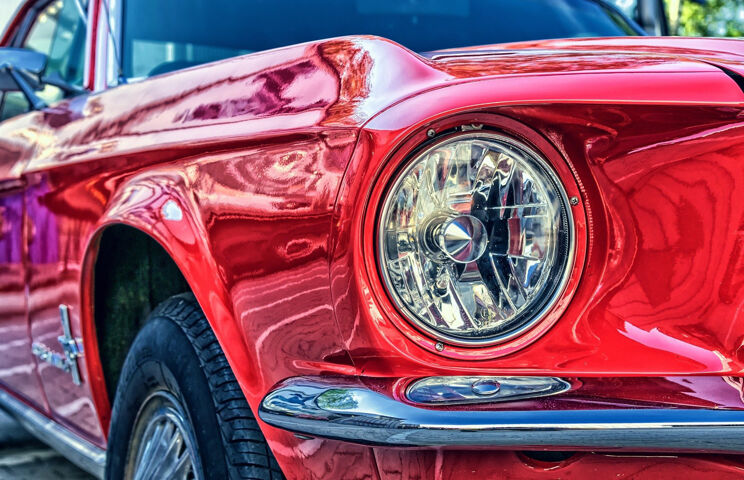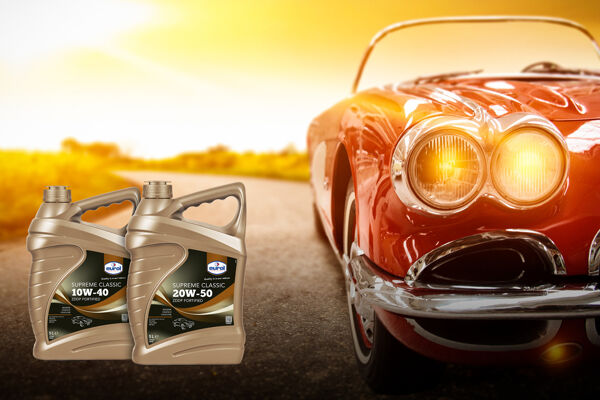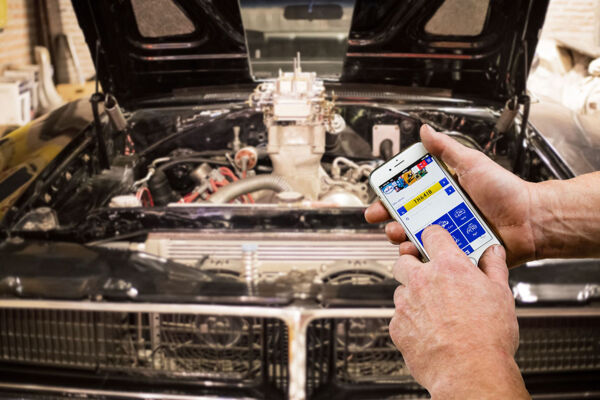
All you need to know about coolant
What does a coolant actually do, what are the differences between technologies, and what properties do they have? Why is it no longer possible to make a choice based on the...
9 de maio

Engine oils that are suitable for vintage cars, such as Eurol Special 15W-40 or Eurol Bediga 20W-50, are often more viscous and contain more phosphorous and zinc than modern engine oils. However, modern engine oils do not offer vintage cars enough protection. If the engine has not been overhauled, make sure to use the originally prescribed engine oils and follow the oil-change intervals. You should always change the oil once a year at a minimum.
Engine oil is only one part of proper engine care – choosing the right fuel is equally important. Modern fuels with lower octane contents and higher ethanol contents can cause damage to the fuel system in your vintage car. This can include wear to vulnerable parts, quicker degradation of the fuel, and lines becoming clogged. If you’re filling up for the first time, pay close attention when you’re at the pump, and check that the fuel is suitable for your specific model if you’re unsure. Bear in mind that the name of the fuel can vary between filling stations.
Generally speaking, a fuel with a high octane content and low ethanol content is the most suitable for your vintage car. If you have to fill up using a fuel with a lower octane content, we recommend using an additive to increase the octane content, such as the Eurol Petrol Octane Improver.
In deciding on a suitable coolant, always consider the materials that have been used in your vintage car. Some coolants contain substances than can damage these materials. We recommend using Eurol Coolant -36°C BS 6580 coolant in classic cars, as all materials used at the time are able to tolerate it. Before taking to the road, check that your coolant level is sufficient.
When looking for a suitable brake fluid, the prescribed grade should always be your starting point. Using the wrong brake fluid can damage the rubbers and cause leaks, resulting in damage to the brake system. Make sure that you change the brake fluid at the recommended interval to prevent driving with old or contaminated fluid that could damage your brake system.
We don’t recommend switching from a silicone-based DOT 5 brake fluid to a gycolether-based DOT 3, 4, or 5.1 (or vice versa). These fluids are unable to dissolve in one another, so just cleaning the system is insufficient. Instead, the entire brake system would need to be purged of any contamination left behind by the previous brake fluid, which often requires the entire brake system to be disassembled. Contact between these two different types of brake fluid will lead to complications in your brake system. In addition, some parts of the brake system can only work together with just one of the two types of brake fluid. For example, if a system that is suitable for DOT 4 is purged of all fluid, there may still be problems if the seals come into contact with silicone-based DOT 5. As such, Eurol recommends changing the old brake fluid for new brake fluid with the same chemical composition.
It’s not just the fluids that need attention in your vintage car. Perhaps your car has chrome and aluminium parts, or maybe you want to protect the rubbers around the doors and windows from the weather? If so, opt for a Vaseline or silicone spray, such as Eurol Vaseline Protect Spray or Eurol Silicone Multi Spray.
It’s important to keep your tyres pumped up throughout winter hibernation, so make sure to check your classic’s tyres regularly and top them up if need be. This way, they are less likely to develop flat edges. If you’re heading out on the road soon for the first time, check your tyres again to make sure that they have enough air.
It might be obvious, but that doesn’t make it any less relevant – check that your lights are still working before heading out on the road to ensure that you are always visible to your fellow road users.
Are you keeping your car indoors for a while? Or perhaps putting it into storage for a few months? Eurol has a number of tips for maintaining your classic car. Ensure that your car is kept in a well-ventilated space and is always washed and dried thoroughly, ideally in the wind. It is also recommended that you keep the pedals running smoothly during storage by pressing them firmly at regular intervals. In addition, make sure that you don’t leave the handbrake on, as there is a risk of it getting stuck. Finally, keep the fuel tank full during winter storage, as this helps to prevent corrosion and rust formation. To protect your gasoline while your vintage car is stationary, we highly recommend Eurol Petrol Fuel Treat. This helps to prevent problems such as gumming and sticky float needles.
Eurol offers a wide range of products, including a variety of lubricants that are ideal for classic vehicles. If you’re looking for the right lubricants for your vintage car, check out the Eurol Oil Advisor via our website or the app. You can search by ‘Classic cars’, where you’ll find a range of different makes and models.
If you need advice to help resolve specific (technical) symptoms, use the Eurol Additives Advisor. The advisor provides product advice to help resolve all manner of problems including high oil consumption, leaks, and wear protection. If you can't find the advice you need for your vehicle, please contact our Service Desk on +31(0) 548 750210. They would be happy to help you.

What does a coolant actually do, what are the differences between technologies, and what properties do they have? Why is it no longer possible to make a choice based on the...

Eurol introduces the Supreme Classic 10W-40 and 20W-50, mineral engine oils specially developed for classic cars.

Looking for the right lubricants for an Old Timer? From now on, classic cars are also included in the Eurol product advisor on the Eurol website.

Lubrication is a specialty. As a lubricant manufacturer and specialist, we are happy to share our knowledge with you. That is why from now on you will find various knowledg...

What does a coolant actually do, what are the differences between technologies, and what properties do they have? Why is it no longer possible to make a choice based on the...

Eurol introduces the Supreme Classic 10W-40 and 20W-50, mineral engine oils specially developed for classic cars.

Looking for the right lubricants for an Old Timer? From now on, classic cars are also included in the Eurol product advisor on the Eurol website.

Lubrication is a specialty. As a lubricant manufacturer and specialist, we are happy to share our knowledge with you. That is why from now on you will find various knowledg...
